FORT MONROE, Va. (Apr. 15, 2010) -- Chaplains from the U.S. Army Training and Doctrine Command gathered at the Bay Breeze Community Center here for their annual conference where they examined a different focus on their mission to help Soldiers.
Chaplains, known for providing spiritual guidance and serving as ethics instructors, devoted three days to developing ways to improve their ability to deliver ethics, leader development, and Soldier resilience instruction to the force.
Critical to this effort is the partnership between the TRADOC Chaplains and the Army Center for Excellence for the Professional Military Ethic (ACPME), established in 2008.
According to the ACPME Web site, the organization mission is "to increase Army-wide understanding, ownership, and sustained development of the Professional Military Ethic (PME) through research, education, and publication."
Col. Sean Hannah, director of the ACPME, explained that while partnering with the chaplaincy is nothing new, they have a unique and significant role in the mission of ACPME.
"We have been, and will continue to partner with the chaplains and TRADOC to propagate ethics into the schoolhouses and into the institutional Army," he said. "We see the chaplains as a key partner with [an established] program where officers get trained and they have positions in our schools where they help us execute and propagate products and to train the trainer and do master facilitator in our schools."
"So far, it's been about initiatives on ACPME and the chaplain's part to deepen the Army's commitment to the professional military ethic," said Col. Eric Wester, chaplain from the National Defense University in Washington, D.C.
Gen. Martin E. Dempsey, TRADOC commander, challenged the chaplains to explore how war is affecting Soldier morality and what kind of efforts are taking place to instill values and ethics into new Soldiers.
"What does [protracted and limited war] do to the moral compass' And how is that moral compass defined as they enter the ranks'" he asked. "As we figure that out, I think we see the nature of challenge before us and it [requires] collaboration."
More than one month prior to the conference, the chaplains assembled into four workgroups and began brainstorming ways to partner with ACPME, especially with regards to the chaplain service school instructors' (CSSIs) curriculum and professional development. The work done would culminate into final products to be presented during the conference.
During the conference, the workgroups presented their ideas and sought feedback from their peers, Col. Hannah and Col. Clarke McGriff, the TRADOC chaplain.
"Seventy per cent of the hard work and coordination was done, so we could come to this conference to make good contributions and recommendations to the TRADOC chaplain on what we perceive to be the way ahead for CSSIs," said Maj. Bob Hart of the Chaplain Center and School at Fort Jackson, S.C.
Maj. Jeff Zust, from the Army Research, Development & Engineering Command (RDECOM), attended the conference as the former ethics instructor at the U.S. Army Sergeants Major Academy, a TRADOC school, and highlighted the progress made since he served as a chaplain under TRADOC.
"In 2003, we were starting to talk to TRADOC [headquarters] on how to integrate ethics training across the force and get some kind of standard because the [curriculums] fluctuated. It's neat to see it come together and hear the instructors come up with a plan," he said.
Both ACPME and the chaplains are working to find ways to engrain ethics into the everyday thought processes and the identity of Soldiers. Hart compares ethics to safety, and sees a larger challenge ahead.
"The key for us is what we're trying to do is change the paradigm not only for the CSSIs, but for the Army as well because what we want to do is infuse into the Army that ethical thinking process," he said.
"Not unlike what the Army did with safety. Years ago, that wasn't always the case and now a Soldier naturally thinks safety in all that he does. And that's what we want to do with ethics so Soldiers are intentionally thinking about ethics as they go through their careers from basic training to senior levels of leadership."
Ethics instruction goes beyond the Army values of: loyalty, duty, respect, selfless service, honor, integrity and personal courage.
"Ultimately, it comes down to character," said Zust. "But there's a dialogue on how that character is built in this culture of Army ethos."
"We want to see that translation of learning values into the character of the Soldier," said Hart. "Our [workgroup's] job was to identify where ethical instruction happens for Soldiers, what domain is the best way to teach Soldiers, and then finally what products we could leverage to ... teach ethics."
Discussion of ethics and morality also fed into the increasing priority of Soldier resilience. Hannah explained the relationship between the ethics and morals using post-traumatic stress as an example.
"Much of the problems that cause post-traumatic stress have to do with people's meaning-making systems," he said. "They're exposed to events that challenge their meaning-making system, challenge their thinking, challenge their thoughts on who they are and may conflict ... with their values, their beliefs and ideals based off their behavior."
"It's an integral part of resilience that has to do with your values and beliefs. And strong, moral and ethical values and behaviors can be a source of resilience for a Soldier when faced with these traumatic events," said Hannah.
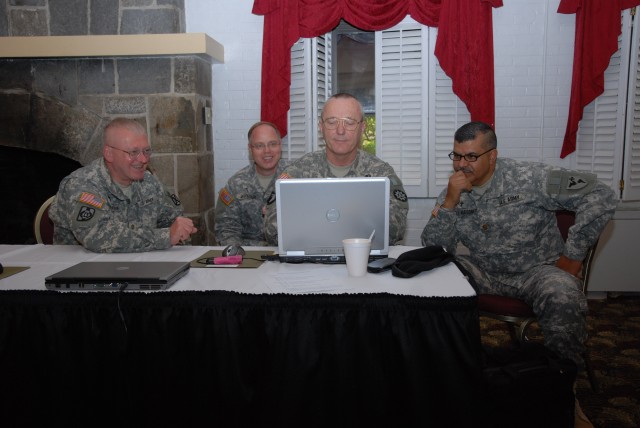
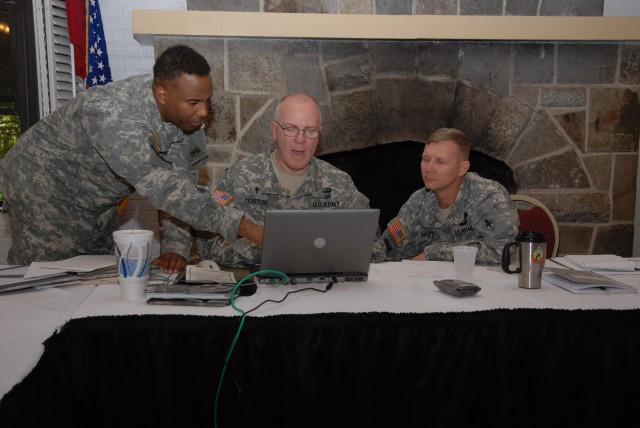
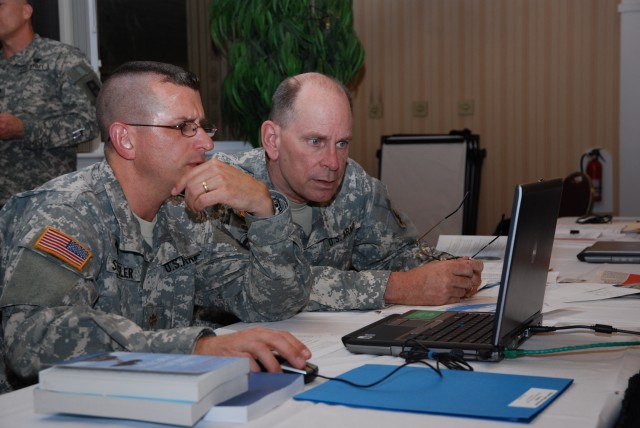
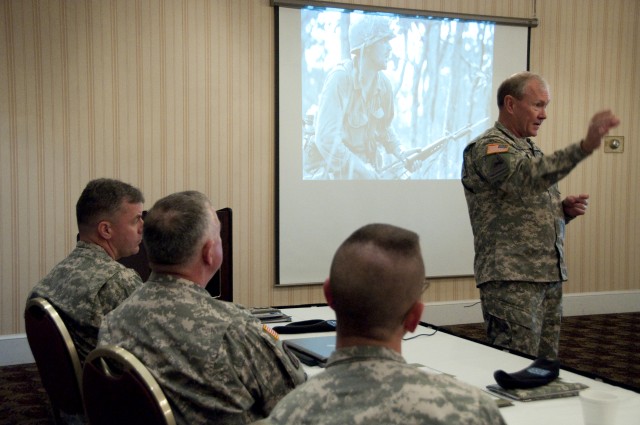
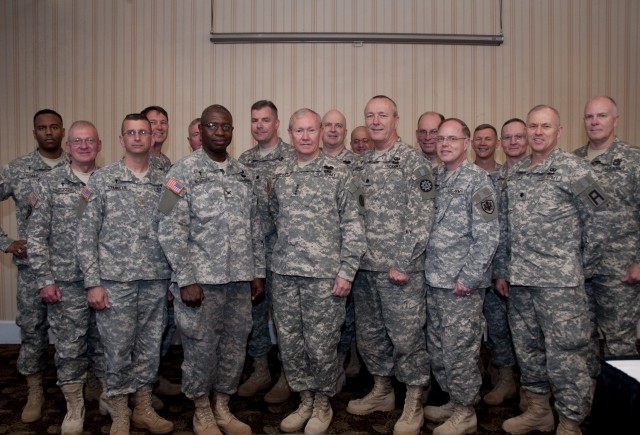





Social Sharing